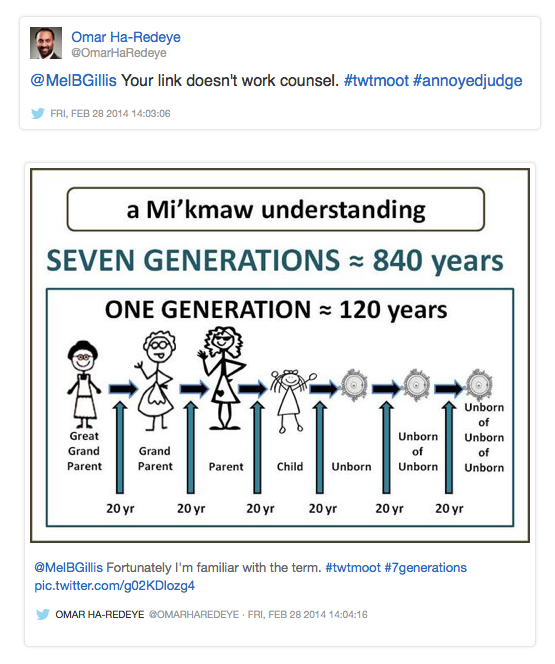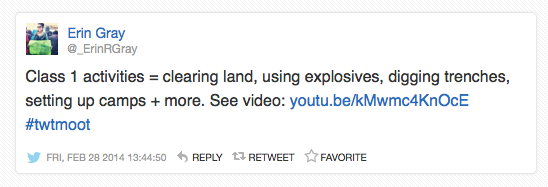Two University of Victoria law students won last week’s Twitter moot, held for a third time by West Coast Environmental Law, a Vancouver-based environmental law advocacy organization. There were five law schools participating in this year’s moot: Schulich School of Law, Osgoode Hall Law School, Lakehead University, the University of Alberta, and the University of Victoria. The issue up for debate was based on
Ross River Dena v. Yukon, a 2012 precedent-setting decision of the Yukon Court of Appeal that held Yukon’s mining laws did not provide for adequate consultation with the Ross River Dena Council. Similar laws are in place in many provinces, so the Twitter moot explored broad issues about the role of mining and Indigenous groups in Canadian law.
Erin Gray (@_ErinRGray) and Mae Price (@MaePrice) were the overall winners of the moot, and also took home the “people’s choice award,” which was determined by an online poll. The two law students were representing the Ross River Dena Council.
The pair argued that Ross River Dena had a constitutional right to be consulted prior to allowing mineral rights being be made available to third parties in the Ross River area. They also argued notification of registered claims cannot constitute adequate consultation.
On Twitter, part of Gray's argument looked like this:
They also created a video to support their argument and even managed to introduce it within Twitter’s 140 character maximum.
Participants were encouraged to be creative when making their arguments, such as using video.
The teams were also encouraged to use humour. Kim Hyok (@KimsterHy), one of the University of Alberta students representing the Government of Yukon in the moot, tweeted this:
The judges of the moot were Omar Ha-Redeye (@OmarHaRedeye), a Toronto-based lawyer; Supreme Court of British Columbia Justice Robert Johnston (@IslandPuisne); and Theresa McClenaghan (@TheresaMcClenag), the executive director and counsel of Canadian Environmental Law Association.
The judges interacted with the participants through Twitter, as well. Ha-Redeye made this comment before posting an image in his next tweet.

The Twitter moot was the No. 1 trending topic in Canada at the time of the event, according to West Coast Environmental Law.
{nomultithumb}




